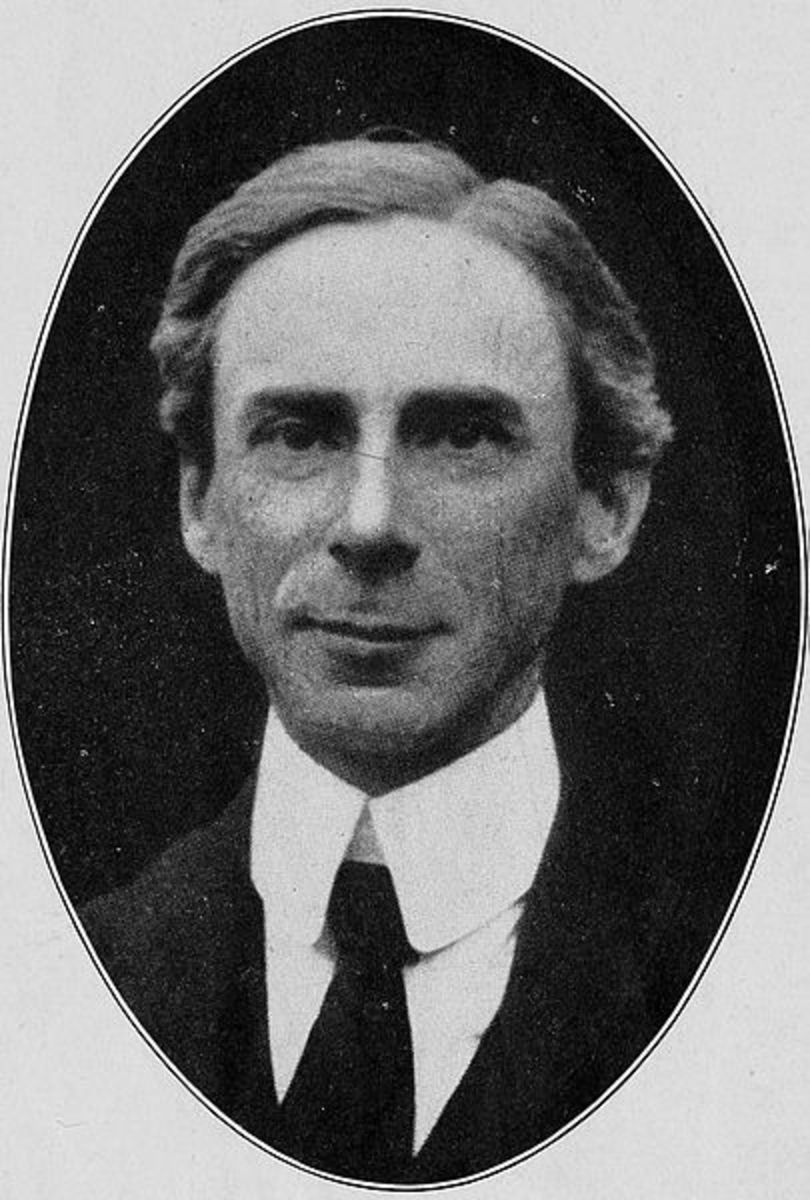The Key Concepts of the Philosophy of Willard Van Quine
Willard Van Quine was a 20th century American philosopher whose work in logic, philosophy of science, metaphysics and epistemology was instrumental is dismantling the claims of the logical positivists established by Bertrand Russell and other analytic philosophers at the beginning of the twentieth century. As well as being influenced by Russell's protege, Ludwig Wittgenstein, Quine was also heavily influenced by the pragmatists William James and John Dewey who had developed a philosophy based on behaviorism and the science of psychology. Quine is easily one of the most important American philosophers in the history of the country and is one of the few to make major contributions to analytic philosophy as it developed in the twentieth century.

THE TWO DOGMAS OF EMPIRICISM
Quine had already been heavily influenced by the ideas of the pragmatists before he became disenchanted with the school of thought of "logical positivism" that had been developed by members of the "Vienna Circle" including Bertrand Russell and Ludwig Wittgenstein. Wittgenstein himself had begun to turn against the ideas of logical positivism and his work of "ordinary language" theory would be published shortly after his death and influence Quine. The positivists believed in a form of scientific empiricism that should evolve from being able to verify facts based on the scientific method. Much of this had been derived from considering the ideas of David Hume and Immanuel Kant.
The first dogma that Quine considered was the analytic and synthetic distinction that positivist had used. Analytic propositions were propositions that were derived from the form itself, or were self-evidently true. Synthetic propositions were not true by definition, meaning their predicate concept is not contained in their subject concept. Kant was the first to propose this logical distinction but the logical positivists version had varied from the one proposed by Kant a great deal.
Quine insisted that what had always been assumed to be simple analytic statements were not that simple. The term "All bachelor's are unmarried males" for instance assumes that the two terms, bachelors and unmarried males, mean the same thing. But Quine pointed out that there are other usage of the word bachelor, such as bachelor's degree and that this usage did not have relations to the terms unmarried males. Quine went on to state that the term "all creatures with kidneys are creatures with hearts" is a logically true statement but that the two terms are not synonymous with each other. It happens to be true that all creatures with kidneys also have hearts but those terms are not synonymous nor do they necessarily follow from each other. In order for the term "All bachelor's are unmarried males" to be truly analytic there must be a necessary connection between the terms which there isn't.
In this way Quine was following the same road as Wittgenstein by claiming that the meaning of language depended completely on context. Quine claimed that the contextual framework was part of a theory that is already present from which we define meaning. He used the example of if you were to go to an island where none of the natives spoke a language that has ever been known to you. If a rabbit were to run by and the native were to point and shout a word you would have no way of knowing whether that word meant, "rabbit", "look", "running", "food" etc.
This is the basics of Wittgenstein's "Ordinary Language Theory" but to it Quine adds that even if you were to catch the rabbit and was sure that this was the object that the native was referring to you still could not be sure he means the same thing. For instance, the native may have a different metaphysical concept than you have. You may mean the physical form of the rabbit but he may believe in a spiritual form of a rabbit that you don't believe in. He may be a Platonist, believing in Plato's "Theory of the forms" and so he means an idealized form of rabbit. Though you are referring to the same object you are still not communicating because your theories and systems you are using are essentially different.
The point that Quine was making was that we all have a theoretical framework from which we work. In communicating we have a linguistical framework. Science has the scientific method. We have an Ontological or metaphysical framework of how we interpret reality. If two beings have completely different frameworks from which to work from then could never really understand each other until they understood the theory.
Here Quine returns to the philosophy of science and takes on "verification theory." This second dogma of the logical positivists is that any thing that cannot be verified empirically is meaningless. This makes ethics and metaphysics meaningless, at least to science and to philosophy as well. Quine claims that the verification on physical evidence is wrong for just the reason that he has outlined, that verification cannot be known without some theoretic framework from which to go on and that makes it simply an article of faith.
EPISTEMOLOGY
Quine concludes his attack on logical positivism by stating that what makes science still the best way to gain knowledge is the framework from which it is derived. All scientific knowledge is interconnected through a set of theories. These theories are how we judge the validity of knowledge. We work from the theory to evaluate new information and see how it stands up against the knowledge that we have already gained. When we gain knowledge that contradicts the theory we make modifications but we still use the framework of knowledge that we already have to form our basis for validity.
Quine has effectively blurred the line between science and metaphysics through this argument and he has gone a long way to validate the ideas of pragmatists. To a pragmatists we adopt physicalism and science not because we have a basis for judging it valid through outside philosophy but because it allows us to predict things and is the most useful system for our everyday existence.
A common philosophical project going back to at least Descartes was the attempt to justify all knowledge. Quine says that this is impossible. Science is the best form, in a pragmatic sense, to obtain knowledge but he claims that because of this it is impossible to have a system that could justify science. If a system of knowledge could justify science then it would take its place and there would then be need of a system to justify that system. Quine says that it is completely unnecessary to seek justification for science as long as it continues to predict outcomes.
Some philosophers reject this and claim that Quine is arguing in a circle. Quine's response was to compare our search for knowledge as being on a boat that we need to patch up as we are sailing. If science is the best way to patch the boat then questioning it further does not help us in any way. Quine thinks that the only way to learn more knowledge about how we use science is to look at the human organism itself through psychological exploration.









